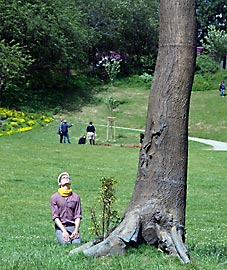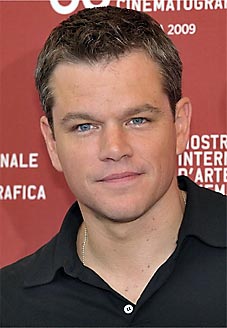By William Q. Judge

Triebkraft des Willens ist das Begehren.“ Dieser viel zitierte Satz von W. Q. Judge macht klar, dass unser WILLEN wesentlich von unserem BEGEHREN abhängt. Was wir wirklich wollen, ist in Wirklichkeit das, was wir begehren. Unser Willen, etwas Bestimmtes zu tun oder nicht zu tun, wird also nicht von dessen vermeintlicher Stärke oder Schwäche bestimmt. Auch nicht von äußeren Umständen. Sondern von unserem Begehren.
Wer also auf dem PFAD konkret vorankommen möchte, muss notgedrungen sein Begehren in den Griff bekommen. Dabei führt kein Weg an einem konzentrierten Mind vorbei. Effektive Konzentration aber kann nur durch ausdauernde und konsequente Meditation erreicht werden. Die Abhandlung von W. Q. Judge liefert eine zeitlos Checkliste dazu (Redaktion).
These three, meditation, concentration, will, have engaged the attention of Theosophists perhaps more than any other three subjects. A canvass of opinions would probably show that the majority of our reading and thinking members would rather hear these subjects discussed and read definite directions about them than any others in the entire field. They say they must meditate, they declare a wish for concentration, they would like a powerful will, and they sigh for strict directions, readable by the most foolish theosophist. It is a western cry for a curriculum, a course, a staked path, a line and rule by inches and links. Yet the path has long been outlined and described, so that any one could read the directions whose mind had not been half-ruined by modem false education, and memory rotted by the superficial methods of a superficial literature and a wholly vain modern life.
 Gras schafft sich Lebensraum in einer Teerpiste. Eine wirksame Form von Ausdauer, Konzentration und Willen (Bild: Trinosophie-Blog)
Gras schafft sich Lebensraum in einer Teerpiste. Eine wirksame Form von Ausdauer, Konzentration und Willen (Bild: Trinosophie-Blog)
Let us divide Meditation into two sorts. First is the meditation practiced at a set time, or an occasional one, whether by design or from physiological idiosyncrasy. Second is the meditation of an entire lifetime, that single thread of intention, intentness, and desire running through the years stretching between the cradle and the grave. For the first, in Patanjali’s Aphorisms will be found all needful rules and particularity. If these are studied and not forgotten, then practice must give results. How many of those who reiterate the call for instruction on this head have read that book, only to turn it down and never again consider it? Far too many.
The mysterious subtle thread of a life meditation is that which is practiced every hour by philosopher, mystic, saint, criminal, artist, artisan, and merchant. It is pursued in respect to that on which the heart is set; it rarely languishes; at times the meditating one greedily running after money, fame, and power looks up briefly and sighs for a better life during a brief interval, but the passing flash of a dollar or a sovereign recalls him to his modern senses, and the old meditation begins again. Since all theosophists are here in the social whirl I refer to, they can every one take these words to themselves as they please. Very certainly, if their life meditation is fixed low down near the ground, the results flowing to them from it will be strong, very lasting, and related to the low level on which they work. Their semi-occasional meditations will give precisely semi-occasional results in the long string of recurring births.
„But then,“ says another, „what of concentration? We must have it. We wish it; we lack it.“ Is it a piece of goods that you can buy it, do you think, or something that will come to you just for the wishing? Hardly. In the way we divided meditation into two great sorts, so we can divide concentration. One is the use of an already acquired power on a fixed occasion, the other the deep and constant practice of a power that has been made a possession. Concentration is not memory, since the latter is known to act without our concentrating on anything, and we know that centuries ago the old thinkers very justly called memory a phantasy. But by reason of a peculiarity of the human mind the associative part of memory is waked up the very instant concentration is attempted. It is this that makes students weary and at last drives them away from the pursuit of concentration. A man sits down to concentrate on the highest idea he can formulate, and like a flash troops of recollections of all sorts of affairs, old thoughts and impressions come before his mind, driving away the great object he first selected, and concentration is at an end.
This trouble is only to be corrected by practice, by assiduity, by continuance. No strange and complicated directions are needed. All we have to do is to try and to keep on trying.
The subject of the Will has not been treated of much in theosophical works, old or new. Patanjali does not go into it at all. It seems to be inferred by him through his aphorisms.Will is universal, and belongs to not only man and animals, but also to every other natural kingdom. The good and bad man alike have will, the child and the aged, the wise and the lunatic. It is therefore a power devoid in itself of moral quality. That quality must be added by man.
So the truth must be that will acts according to desire, or, as the older thinkers used to put it, „behind will stands desire.“ This is why the child, the savage, the lunatic, and the wicked man so often exhibit a stronger will than others. The wicked man has intensified his desires, and with that his will. The lunatic has but few desires, and draws all his will force into these; the savage is free from convention, from the various ideas, laws, rules, and suppositions to which the civilized person is subject, and has nothing to distract his will. So to make our will strong we must have fewer desires. Let those be high, pure, and altruistic; they will give us strong will.
No mere practice will develop will per se, for it exists forever, fully developed in itself. But practice will develop in us the power to call on that will which is ours. Will and Desire lie at the doors of Meditation and Concentration. If we desire truth with the same intensity that we had formerly wished for success, money, or gratification, we will speedily acquire meditation and possess concentration. If we do all our acts, small and great, every moment, for the sake of the whole human race, as representing the Supreme Self, then every cell and fibre of the body and inner man will be turned in one direction, resulting in perfect concentration. This is expressed in the New Testament in the statement that if the eye is single the whole body will be full of light, and in the Bhagavad Gita it is still more clearly and comprehensively given through the different chapters. In one it is beautifully put as the lighting up in us of the Supreme One, who then becomes visible. Let us meditate on that which is in us as the Highest Self, concentrate upon it, and will to work for it as dwelling in every human heart.
Irish Theosophist, July 15, 1893
Zuletzt aktualisiert: 31.07.2007 von Heinz Knotek






